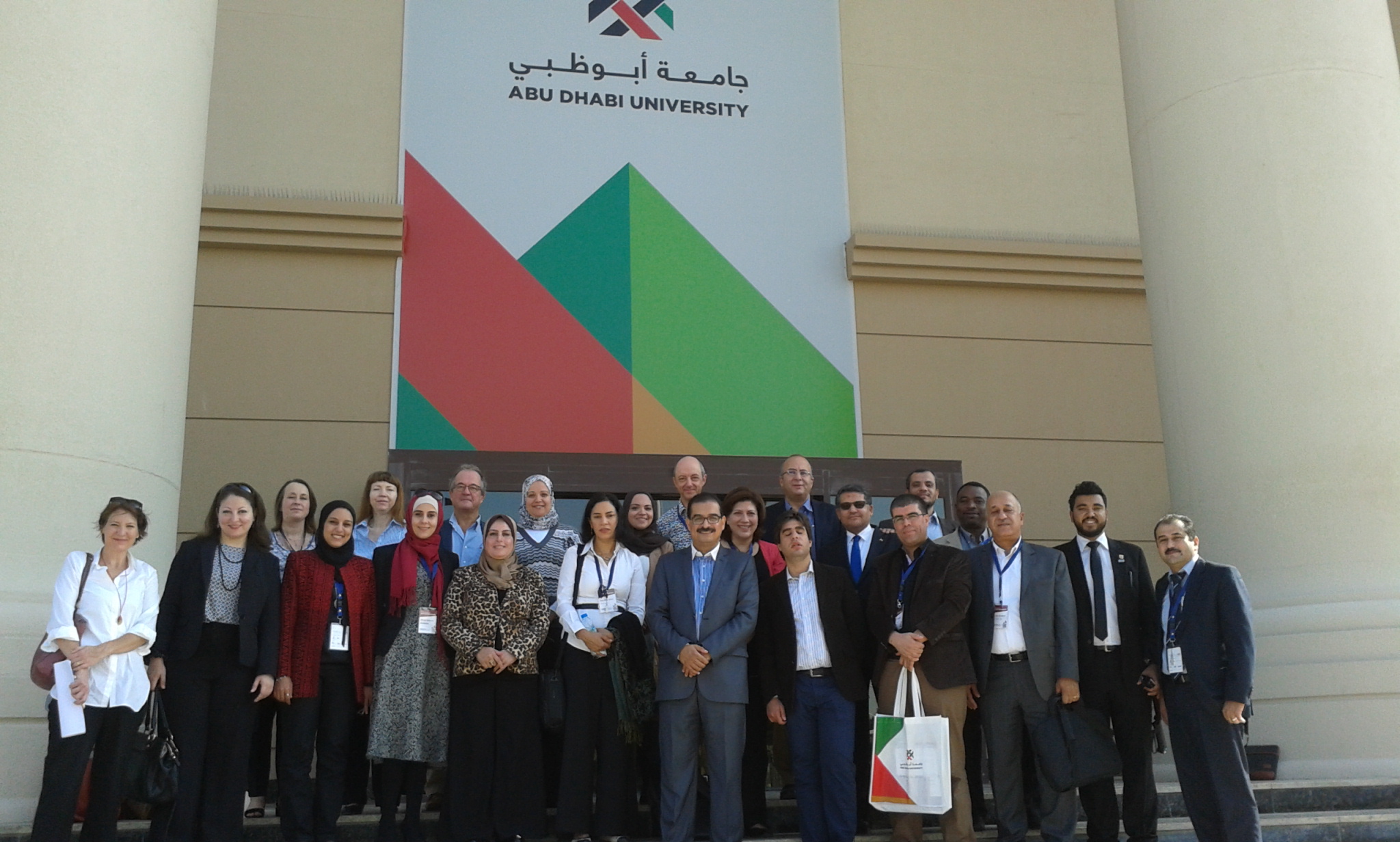By Rachel Hayman.
Just a year after our workshop on civil society sustainability in Oxford, we convened similar discussions in two very different regions: at the Takaful conference on Arab Philanthropy and Civic Engagement in Abu Dhabi; and in a workshop with the West Africa Civil Society Institute in Ghana.

Takaful conference.
The Takaful conference was dominated by discussions about social enterprise and private giving, with a strong emphasis on youth, underpinned it seemed by a desire to harness the potentially explosive power of the ballooning youth population through channelling their energy into social works. We heard from organisations supporting young entrepreneurs to deliver social projects, such as food banks and micro-enterprise. Others were supporting education, orphanages, and shelters for vulnerable women and children.
Many presentations focused on the growth and revival of waqf, endowment funds based on private giving which draws on strong historical roots across the region. This is one manifestation of the ongoing expansion of philanthropy in the Middle East.[1] Presenters focused on interventions delivered directly by foundations, channeled into social enterprise schemes or delivered in partnership with large international agencies (e.g. United Nations’ bodies) or large international non- governmental organisations (NGOs).
We heard very little about local NGOs or civil society organisations (CSOs) though. Indeed, in some countries of the Gulf it seems that it is easier to establish a social enterprise than an NGO. And there was considerable scepticism about the effectiveness of CSOs to deliver economic and social development. Some foundations favour setting up and delivering their own projects and programmes because the accountability and impact is clearer, rather than working with non-profits.
All the discussions made me revisit “Is the future private? Sustainability, social enterprise and (my) social conscience”, a blog post I wrote in January 2015 on the renewed emphasis on private financing for development, including through social enterprise, and what consequences this could have for CSOs.
There was excitement at the conference around social enterprises designed by young people in response to competitions and small-grant schemes but, as much as it is inspiring to see young people – and the not so young – coming up with interesting (and occasionally truly innovative) ideas to tackle social problems, caution is also necessary.
For the past 20 years I have been visiting social development projects in communities where people have been working in cooperative ways to tackle pressing problems. More often than not this has involved developing income-generating activities: using the proceeds from sales of craft items, food produce or services to fund their activities with no profit motive. Some – generally the better-connected – might catch the eye of a local philanthropist, a national or international NGO or a donor to grant them additional support. Some are even effective at delivering the change they seek. I found I was asking myself repeatedly how some of the social enterprise ideas being presented differed from the ideas such community groups have been developing for decades to tackle poverty and discrimination around them. Moreover, many social enterprises involve working with the most vulnerable, most marginalised and most disempowered groups. Enthusiasm to win the competition should not be at the expense of facing the very difficult challenge of catalysing change from within and empowering people to take responsibility for their lives. CSOs struggle with this; can social enterprise offer new ways to tackle this?
At Takaful, questions were raised about regulation of social enterprise, including how much profit the entrepreneur was required to channel back into the business and its social goals; in this region it seemed hazy and often up to the individuals involved. I am no expert in social enterprise, but I understand the model as business-oriented, which is a very different model to a voluntary organisation, or a professional not-for-profit CSO. The motivations and the ethos differ, even if both have social objectives.
CSOs in the region are heavily critiqued for competing not coordinating, which appears to be one explanation for their lack of coherence and impact. Is there a risk of a proliferation of small-scale schemes and new organisations growing from social enterprise who compete to be the most innovative and most successful without any coordination or cooperation? Or can the competition inherent in this model beget the economic empowerment and employment that is needed in this region and that CSOs are struggling to deliver?
A business with no market, no clients, no connectedness and no results fails. A CSO with no constituency and no impact – but that has funding and the backing of external actors – can survive. This is part of the problem that has undermined the credibility of so many CSOs in MENA and beyond. Against a backdrop of fast falling international donor support to such countries as Egypt and Palestine civil society actors are exploring private funding sources with new sense of purpose. Can social enterprise offer lessons about how to be in touch with the local ‘market’ and ‘clients’ (what CSOs might term their beneficiaries), about how to have focused purpose and drive?
I guess the question I can’t quite shake is whether social enterprise can tackle the intangible and ‘messy stuff’, and I came no nearer to answering that question at Takaful. However, the discussions did reinforce our need to explore what social enterprise can offer to help CSOs rethink their legitimacy, their credibility and their effectiveness. These are emerging as critical to the sustainability of civil society.
[1] See Alliance Magazine, Sept 2015; Farouky, Naila (2015). CIVICUS State of Civil Society report 2015: ‘Trends in philanthropy in the Arab region: beyond a charity-based model’.